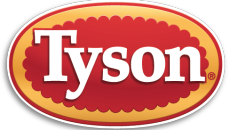Among the major oil processing companies in the United States, Halliburton Company (NYSE:HAL) and Baker Hughes Incorporated (NYSE:BHI) have agreed to join hands. Halliburton has put up an offer of $35 billion in both cash and shares of the company. However, the merger is likely to raise some antitrust issues considering the large market share these combines share in the industry.
The overall transaction value for the deal is $35 billion and the current stockholders of Baker Hughes will receive $19.00 per share along with 1.12 shares of Halliburton. As per the agreement terms, Halliburton Company (NYSE:HAL) would pay $78.62 for every single share of Baker Hughes Incorporated (NYSE:BHI).
For the records, these two companies collectively generated revenues of $51.8 billion on pro-forma basis in 2013. While working together, these two companies would be able to market services in over 80 markets. Further, these two companies are likely to save up to $2.0 billion in synergies with combined operations.
Dave Lesar, CEO of Halliburton Company (NYSE:HAL), said,
“The transaction will combine the companies’ product and service capabilities to deliver an unsurpassed depth and breadth of solutions to our customers, creating a Houston-based global oilfield services champion, manufacturing and exporting technologies, and creating jobs and serving customers around the globe.”
Martin Craighead, CEO of Baker Hughes Incorporated (NYSE:BHI), said,
“By combining two great companies that have delivered cutting-edge solutions to customers in the worldwide oil and gas industry for more than a century, we will create a new world of opportunities to advance the development of technologies for our customers.”
However, antitrust experts are opined that the regulators are unlikely to approve this deal, as the deal would limit the industry between two major companies including the merged company and Schlumberger Limited. (NYSE:SLB). Steven Cernak, Schiff Hardin law firm, said, “This looks like a 3-to-2 merger. And 3-to-2 mergers are going to be tough to get through anywhere.”
On the contrary, Mr. Lesar is quite sure that the regulators would approve the merger. He said,
“We clearly would not have done this deal if we didn’t believe it was achievable from a regulatory standpoint. We are absolutely confident that we’re going to get this thing done.”
This article has been written by Prakash Pandey.


